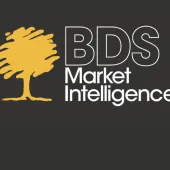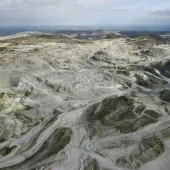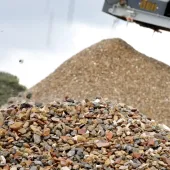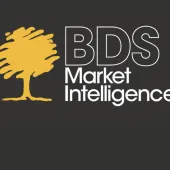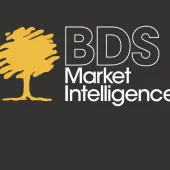The Development of BDS Marketing Research

First published in the August 2016 issue of Quarry Management as Building Knowledge for Success
In June this year QMJ Publishing acquired BDS Marketing Research. In this personal account, BDS founder and director Julian Clapp explains how he came to establish the business in 1989 and describes its development over the 27 years since then
Having graduated with an Honours degree in Economics, it seemed sensible to apply for jobs using this experience. None materialized. The net was widened. The first job offer was as a market analyst with Tarmac Roadstone in Wolverhampton. My knowledge of marketing matched my zero knowledge of the quarrying industry. The marketing manager of Tarmac at the time – Chris Wallis – must have seen something though. I started on 23 August 1976 on a salary of £2,346 (a year). Chris was a major influence in the early years. Forty years later, we still keep in touch. The Tarmac logo at the time (seven T’s to denote the seven Tarmac companies), together with Blue Circle are perhaps the two most iconic logos of the industry in my lifetime.
I was one of four market analysts in a department of 12. Much of my time was spent assessing the building blocks market. Tarmac entered the sector soon after, acquiring one of the largest independent producers. Within six months the company started a major reorganization. Work within the department dried up. Other staff were moved into the regions but Chris wanted me to remain in the centre. Just as things were being sorted, ARC Concrete advertised for a market analyst at Chipping Sodbury. More money and nearer home, this was too good an opportunity to miss. This was the concrete products business within ARC. In my six years there, we moved from being the fifth largest producer of drainage products to become market leader. Within Conbloc, the number of block works doubled. We also planned to enter the roof tile market as a new, third business. Extensive market research identified the South East as having the greatest potential for a new plant which should be located adjacent to a suitable source of tile sand. The works that was established was situated in Leicestershire. Other mistakes were made and the plant lasted only for a short while before being acquired by one of the existing tile manufacturers.
In the meantime, the quarrying division wanted a head of marketing at ARC Southern. The mid- and late 1980s were an exciting period for the industry. Princess Anne opened a £25 million redevelopment of Whatley Quarry. A number of businesses were acquired, including Bath & Portland Group. New mortar plants were established and sales doubled. There was a strong management set-up which I could learn from. Nearly 10 middle managers have subsequently become directors within the industry. Unfortunately, by 1988, I felt that I was not getting the support from immediate management that I needed. With job security not guaranteed, I started to look at other possibilities. A number of options were considered, some within the construction industry, others outside.
I had developed a number of market information systems within ARC and took the view that this could be of interest to other companies. The idea of BDS was formed. The business started trading on April Fools’ Day, 1989. The irony was not lost. In hindsight, 34 was a good age to start a business. I had 13 years’ experience behind me and was still young enough to accept the challenge and worry less about the risks.
Whilst I knew a lot about the quarrying industry in the South West, I knew nothing of 80% of the industry to the east of Reading or north of Cheltenham. As well as developing reports, I had to quickly get up to speed with the rest of the country if BDS was to be established as a business that claimed to know something about the market. The first report monitored planning applications and consents for new mineral reserves. This report continues today. The first cheque arrived. It was for £85, but it felt like a million dollars.
A 200-page market survey of the GB aggregates industry was also published in the first six months. It was well received and also helped to establish BDS’s credibility going forward.
Turnover in the first year was considerable, and although costs had to come out of this it was encouraging to see that the business model appeared to be working. Planning reports were developed in concrete and waste. A quarry outputs report was published for the first time, based on rateable values. This was not as accurate as hoped. We soon moved to approaching companies direct to discuss draft quarry output estimates. Similar reports were developed in ready-mixed concrete, asphalt, landfill and several concrete products. These reports also continue to be published and provide the only independent source of information on outputs and shares. Often dealing with confidential information, companies trust that we will not abuse their information.
Technology has helped the business grow. In the early days, planning information was obtained via telephone calls, with Council Minutes and planning documents sent by post. All information is now sourced online. Monthly BDS planning reports were sent to subscribers by post. Today, all reports are emailed with subscribers also having access to the BDS online portal.
Since 1989, BDS have published more than 500 reports and prepared more than 1,500 surveys for individual clients. These vary in size but we aim to give all of them the same due care and attention, irrespective of size. Once a bad reputation is gained, it is difficult – if not impossible – to get it back.
It has been the major client jobs that stick most in the mind. The first large client contract was with an Australian company in 1990, seeking to enter the UK market. This did not come to fruition. Major industry investments seem to have come about every five years on average. In 1996 we undertook six months of preparatory work for Lafarge before they entered the UK market through the acquisition of Redland. Similarly, Anglo commissioned BDS before they acquired Tarmac in 2000.
In 2006 we worked with one of the three main parties interested in acquiring Foster Yeoman. Aggregate Industries were successful. A Competition Commission requirement was that two asphalt plants had to be sold. We were then commissioned by investors behind what became United Asphalt, to provide an independent assessment of the market position and prospects for the new business. Having used BDS in the original Foster Yeoman project, we were asked back to be involved in the second project.
In the same year, Anglo announced that they were to sell Tarmac. Private equity companies were known to be interested. BDS could sell published reports to these businesses, but I knew that at some stage we would need to sign an exclusivity agreement with one company. Discussions took place with eight companies. We needed a guarantee of a certain level of work with a company that was likely to get through to the final bidding round. Whilst all showed serious interest, it became clear that some would be more successful than others. We signed an exclusivity agreement with one business and waited for the formal sale documents – and waited. 2007 changed everything. The sale was delayed.
The two most challenging projects have been the commercial due diligence work involving the sale of Lafarge and Tarmac assets that became Hope Construction Materials (for a client other than Hope), and the sale of Tarmac. The Hope deal was challenging due to the need to appraise assets that previously were operated by two separate companies but would now be managed together, while it was the sheer size of the Tarmac deal that provided the challenge. Both required a clear understanding of the assets and how these would perform in the future.
It would be understandable to think that after 27 years we have covered all possible projects. That is not the case, which makes for ongoing enthusiasm and interest in the company. Looking at individual projects already completed in 2016: a detailed report examined the market for a possible new sand and gravel pit in the Midlands – taking into account competitors, reserves and aggregates supplies to concrete plants; another client wanted to know the permitted hours at selected asphalt plants – information which is in the public domain but takes a while to source; research of ready-mixed concrete suppliers and contractors in Europe identified current concrete prices in specific cities, such as Paris, Berlin and Madrid; and another client looking to develop an inert waste facility wanted information on inert landfill sites and recycled aggregates.
Having been involved in all the major industry acquisitions to a greater or lesser degree, BDS have recently been acquired themselves, by QMJ Publishing. Clearly, the value put on the business was important, but equally, it was vital to me that a buyer was found with a similar company ethos and approach to business in terms of customer service. There are some clear synergies which will help BDS develop further, and when I finally retire it will be in the knowledge that the company is in good hands.


